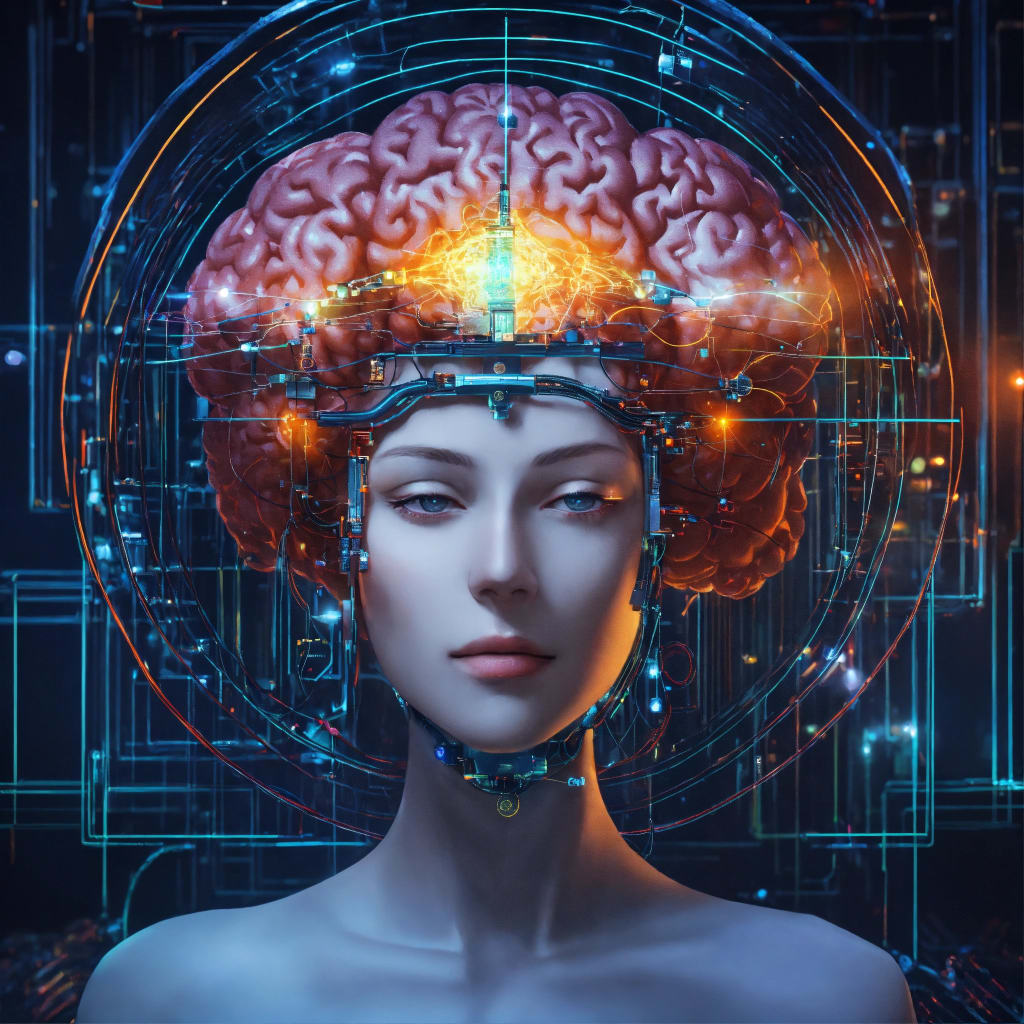Innovation in the Tech Industry: The Rise of AI Development
English

Introduction to AI Development
Artificial Intelligence (AI) development involves creating algorithms and systems that can perform tasks that typically require human intelligence.
AI development includes machine learning, deep learning, natural language processing, and computer vision.
AI developers use programming languages like Python, R, and Java to build and train AI models.
AI development is crucial for various industries, including healthcare, finance, autonomous vehicles, and cybersecurity.
As AI technology advances, the demand for skilled AI developers continues to grow.
The Current State of AI Technology
AI technology has made significant advancements in recent years, with machine learning algorithms becoming more sophisticated and capable.
Deep learning, a subset of machine learning, has shown great potential in various applications, such as image and speech recognition, natural language processing, and autonomous driving.
Companies are increasingly investing in AI research and development to enhance their products and services, driving further innovation in the field.
Ethical concerns around AI technology, such as bias in algorithms and data privacy issues, are being addressed through regulations and guidelines to ensure responsible AI development.
The future of AI technology holds promise for continued growth and integration into various industries, reshaping the way we work and live.
The Impact of AI on Industries
AI is transforming various industries, enhancing efficiency, and driving innovation.
In healthcare, AI is revolutionizing patient care with personalized medicine and early disease detection.
The finance sector benefits from AI in fraud detection, risk management, and algorithmic trading.
Retail experiences AI-driven customer insights, efficient inventory management, and personalized recommendations.
AI optimizes manufacturing processes, predicting maintenance needs and improving supply chain management.
Media and entertainment use AI for content creation, recommendation systems, and audience engagement.
Transportation and logistics rely on AI for route optimization, autonomous vehicles, and efficient resource allocation.
Ethical Considerations in AI Development
Ethical considerations play a crucial role in AI development.
Developers must prioritize privacy, security, and fairness in AI algorithms.
Transparency in AI decision-making processes is essential for ethical development.
Accountability mechanisms should be in place to address potential biases in AI systems.
Stakeholder engagement and diversity in development teams are key for ethical AI innovation.
The Role of AI in Healthcare
AI has revolutionized the healthcare industry by improving diagnostic accuracy and treatment strategies.
Machine learning algorithms can analyze vast amounts of medical data to identify patterns and predict potential health outcomes.
AI-powered tools assist healthcare professionals in making informed decisions and providing personalized patient care.
Virtual health assistants and chatbots powered by AI enhance patient engagement and support telemedicine services.
AI applications in healthcare also include drug discovery, medical imaging analysis, and predictive analytics for disease prevention and management.
Challenges and Limitations of AI
AI models require a vast amount of high-quality data to train effectively.
Ethical concerns surrounding AI decision-making processes and potential biases.
Limited ability of AI systems to explain their decision-making process, leading to the issue of interpretability.
AI's dependence on algorithms, which can be vulnerable to adversarial attacks.
The challenge of integrating AI technology into existing systems and workflows seamlessly.
The Future of AI: Advancements and Possibilities
With continuous research and technological advancements, the future of AI holds great promise.
Integration of AI with other emerging technologies such as IoT and blockchain will lead to innovative solutions and applications.
AI algorithms will become more sophisticated, enabling machines to learn and adapt in real-time.
The rise of quantum computing will revolutionize AI capabilities, tackling complex problems at an unprecedented scale.
Ethical considerations around AI development and implementation will shape the future landscape of artificial intelligence technologies.
AI and Automation in the Workplace
Implementation of AI and automation in the workplace is transforming traditional business models.
Businesses are leveraging AI for tasks like data analysis, customer service, and even hiring processes.
Automation technologies are streamlining operations, increasing efficiency, and reducing human errors.
AI-driven tools enhance decision-making processes and provide valuable insights for companies.
The integration of AI and automation is paving the way for a more productive and innovative work environment.
AI and Society: Opportunities and Risks
AI development presents numerous opportunities for society, including advancements in healthcare, finance, transportation, and more.
The integration of AI in various industries can lead to increased efficiency, productivity, and innovation.
However, the rise of AI also brings with it potential risks and challenges, such as job displacement, privacy concerns, and ethical implications.
It is crucial for policymakers, businesses, and society as a whole to carefully consider and address the opportunities and risks associated with the continued development of AI technology.
Conclusion: Shaping the Future of Technology with AI
AI development continues to revolutionize the tech industry by enhancing efficiency, productivity, and innovation.
Continued investment in AI research and development is crucial to stay ahead in the competitive tech landscape.
Collaboration between humans and AI technologies will lead to groundbreaking solutions in various sectors.
Ethical considerations and responsible AI deployment are essential in shaping a future where AI benefits society as a whole.
Embracing AI as a tool for problem-solving and decision-making will drive technological advancement and evolution.





Comments
There are no comments for this story
Be the first to respond and start the conversation.